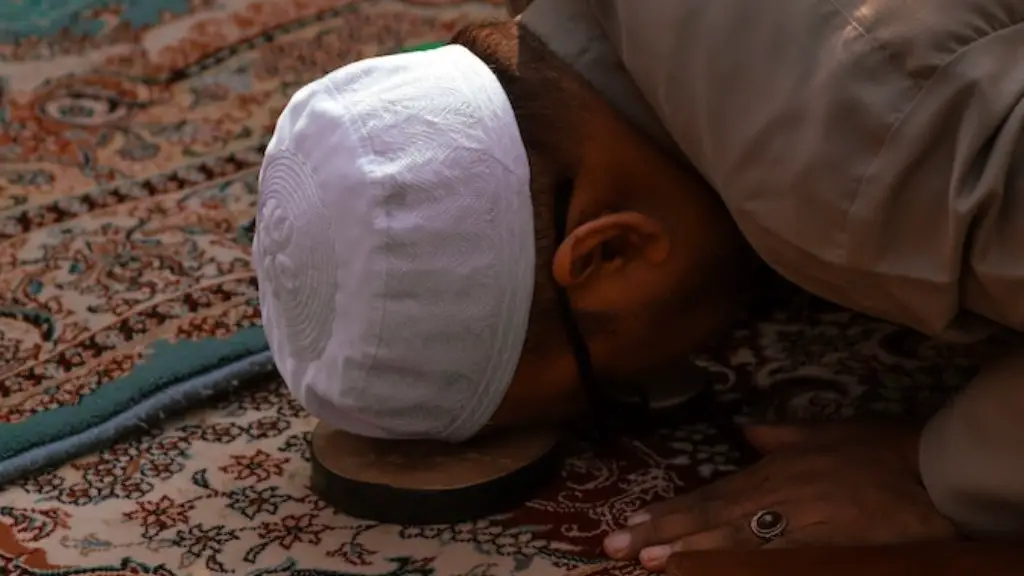One of the most important rites of passage in Jewish life is the Three Weeks. This solemn period is a time of mourning, to commemorate the destruction of both of the Temples in Jerusalem. It is a difficult time, yet is also filled with lessons of faith and hope. Here is an introduction to the Three Weeks, what they mean to Jews, and how they are marked in modern times.
Origin of the Three Weeks
The Three Weeks began after the destruction of the First Temple by the Babylonians in 586 BCE. Jewish tradition inculcates an annual period of mourning during this time, to remember the terrible tragedy that occurred. This event is mentioned in sources such as the Babylonian Talmud, as well as the Book of Lamentations.
In 70 CE, the Second Temple was destroyed by the Roman Empire. This led to an even greater period of mourning, when a day was added to the Three Weeks to mark the remembrance of the disastrous events. From this, the Three Weeks became a symbol of Jewish sorrow and a call for hope and faith in the future.
Meaning and Observance of the Three Weeks
The Three Weeks are a solemn period of reflection and mourning. In some senses, it is a period of “mourning over mourning,” as Jews recall the tragedy that befell their ancestors. During the Three Weeks, many Jews adhere to stricter laws governing their diets, clothing, and behavior. Weddings are prohibited during this time, as are haircuts and other activities that hint of joy and revelry. This is to emphasize the somberness of the period. Additionally, some Orthodox Jewish communities hold memorial services during the Three Weeks.
The Three Weeks also offer a unique opportunity for spiritual growth. It is not only a time of sadness, but also a time for contemplation, introspection, and prayer. By looking back on the suffering of their ancestors, Jews find strength to rebuild. It is a time to think about the past and plan for the future. As Rabbi Lord Jonathan Sacks said, “In Judaism, hope and faith are a moral and spiritual obligation.”
Modern Observance of the Three Weeks
In modern times, the Three Weeks have taken on a new level of importance. In addition to the laws of mourning, laws of prohibition, and memorial services, there has been a renewed focus on the spiritual aspects of the Three Weeks. Rabbinic leaders and organizations encourage Jews to come together to learn, pray, and discuss the importance of the Three Weeks. These events are often held during the final days, leading up to the final day of mourning on Tisha B’Av.
Many of these practices help to bring Jews together to remember and observe the Three Weeks in meaningful and spiritual ways. By participating in events such as lectures, classes, and prayers, Jews can gain greater insight into the meaning of the Three Weeks and how it applies to their lives and communities today.
The Significance of the Three Weeks
The Three Weeks are an integral part of Jewish tradition and identity. It is a chance to honor the tragedy of the past, while also looking ahead to a brighter future. It is not just a time of mourning, but also a time of spiritual growth and renewal. Through engaging in meaningful observance and remembering the past, Jews can look forward to a future of continued faith and hope.
It is also an opportunity to come together as a community and remember those who suffered in the past. By gathering together and sharing in the grief, Jews can find strength and hope to move forward with their faith. In this way, the Three Weeks are an important reminder of the fragility of life, and a call to renew commitment to faith and hope.
Keeping the Memory of the Three Weeks Alive
Despite the tragedy that is remembered during the Three Weeks, there remains a sense of hope and optimism. Jews continue to pass down stories and memories of the Three Weeks so that future generations will understand and remember the suffering of the past. By sharing these stories, Jews can teach their children of the importance of the Three Weeks and how to look ahead to the future with faith and hope.
In addition to keeping the memory of the Three Weeks alive, there are many ways in which modern Jews can observe and commemorate the Three Weeks. Through prayer, special services, and acts of charity, Jews can look to the past and prepare for the future. By engaging with the Three Weeks in meaningful ways, Jews can preserve the memory of their ancestors, and find hope and strength for the future.
Finding Meaning in the Three Weeks
The Three Weeks are a time for acknowledging the sadness of the past and finding strength in the future. It is a time for shedding tears for the tragedies of the past and looking to the future with hope and optimism. Through meaningful observance and acts of charity, Jews can remember and honor the suffering of their ancestors, while also looking to the future with faith and hope.
In this way, the Three Weeks are a time of reflection and renewal. They are a reminder of the fragility of life, and a call to embrace faith and hope. By participating in meaningful observances, Jews can strengthen their connection to the past and look to the future with a renewed sense of faith and hope.
Maintaining Hope in Difficult Times
The Three Weeks are a reminder that, as difficult as times may be, hope and faith remain possible. By gathering together and reflecting on the tragedies of the past, Jews can find strength and courage to move forward and practice their faith with hope and optimism. Through acts of charity, prayer, and communal observance, Jews can find solace and strength during the Three Weeks.
It is important to remember that the Three Weeks are not a time of wallowing in sadness, but a time for inspiration, hope, and a renewed faith in the future. It is an opportunity to honor the memories of the past and look ahead with optimism. While observing the Three Weeks, it is important to remember that hope and faith remain possible, even in the most difficult of times.
Finding Positive Ways to Observe the Three Weeks
While the Three Weeks are a time of mourning and remembrance, it is important to focus on positive ways to observe this period. By engaging in meaningful charitable acts and engaging in spiritual activities and reflection, Jews can honor the memories of the past while looking ahead to a brighter future. There are many ways to observe the Three Weeks and remember the tragedies of the past, including hosting lectures, classes, and engaging in discussions about the meaning of the period.
By taking part in such activities, Jews can find strength and hope in a difficult period. Through prayer, charity, and communal observance, Jews can come together to remember the suffering of their ancestors, and look ahead to the future with renewed faith and hope.
Preserving the Meaning of the Three Weeks
The Three Weeks are a somber period, yet also a time for hope and faith. It is a time for remembering the suffering of the past and looking to the future with optimism. The task of preserving and teaching the meaning of the Three Weeks lies in the hands of the Jewish community. Through meaningful observance of the period, Jews can pass down the stories of the past while looking ahead to the future with faith and hope.
By engaging in prayer, discussion, and acts of charity, Jews can keep the memory of their ancestors alive, while also finding hope in difficult times. The Three Weeks are not only a time of sorrow, but also a chance for learning, spiritual growth, and communal observance. By coming together and looking to the future with hope and faith, Jews can find renewed strength and inspiration.


